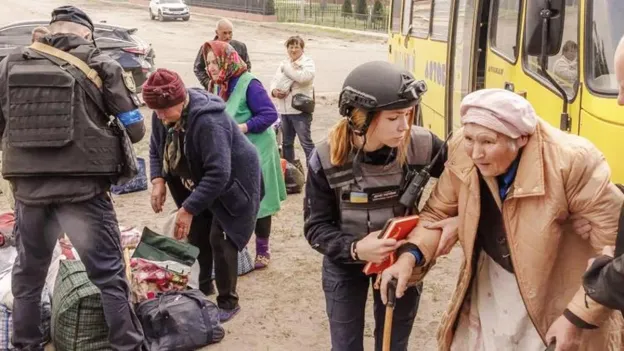Ukrainians Returning to Occupied Areas Due to Harsh Living Conditions

5
World
January 6, 2025 07:00
ukraine - Thousands of displaced Ukrainians are voluntarily returning to their homes in Russian-occupied territories due to challenging living conditions caused by the ongoing war in Ukraine.
According to a special report by Kiev Independent, economic difficulties, housing shortages, and harsh living conditions resulting from Russia's attacks on the country's energy infrastructure are forcing thousands of Ukrainians who left their homes after the Russian occupation to return to the occupied territories.
Within Ukraine, 3.5 million internally displaced persons are facing serious challenges in finding suitable housing. A United Nations study conducted last November revealed that 40% of the displaced population relied on humanitarian aid from the government or international organizations to meet their basic needs. The monthly aid provided by the Kiev government amounts to $45 for adults and $70 for children and disabled individuals. As of August 2024, approximately 1 million people receive social assistance, but many are unable to benefit from the housing supply largely delegated to local authorities. Both Ukrainian politics and public opinion suggest that the process is primarily a governance issue. People point to numerous vacant accommodation centers, such as university dormitories where remote learning continues, as examples.
For Ukrainians experiencing housing and livelihood challenges, returning to their occupied homes seems to be the only solution. However, this is a daunting and risky process for many. With no border controls between the occupied territories and the rest of Ukraine, displaced Ukrainians can only return to their homes in Russia via a third country. Those heading to Sheremetyevo Airport north of Moscow must undergo security screening at a designated "filtering" facility before proceeding to their occupied homes in Russia. Russian authorities reported that 83,000 Ukrainians entered the country through this route between January and October 2024, while Ukraine's figures stood at 1,262 for the same period. Although Russia's numbers are considered inflated for propaganda purposes, it is noted that Ukraine's data significantly underestimates the actual figures.